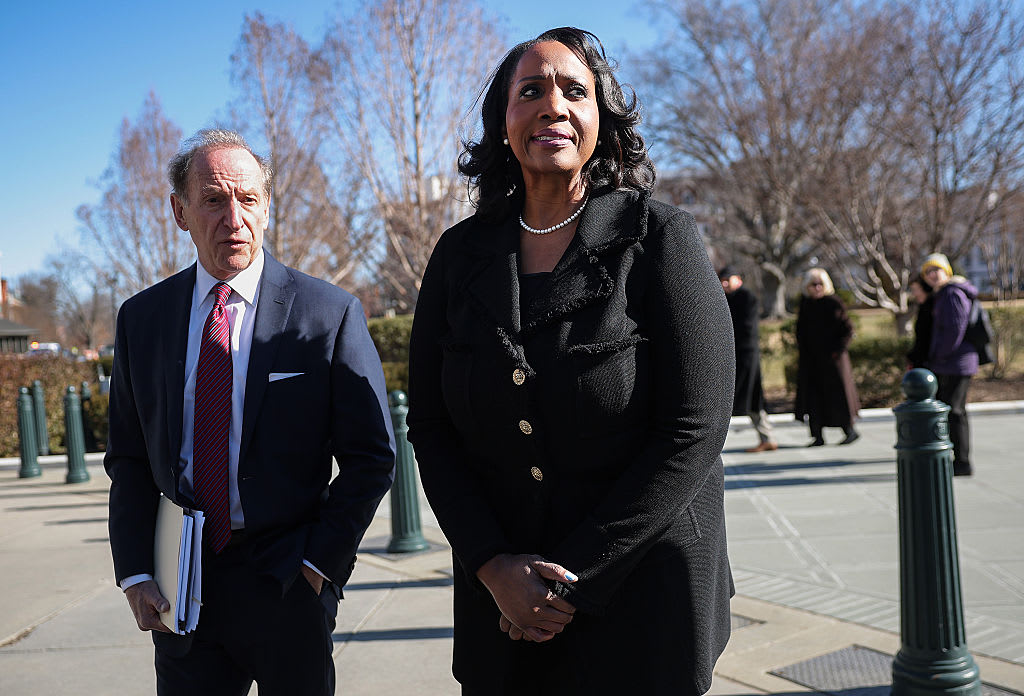How a 2024 Fed rate cut will affect mortgages, according to experts
While inflation has cooled off over the past few months, today's inflation rate of 3.3% is still higher than the Federal Reserve's 2% target rate. As a result, the Fed, which was once expected to cut rates multiple times this year, has kept rates paused at a 23-year high instead to fight back against persistent inflation. In turn, experts now predict that only one rate cut will happen later this year.
Because rates remain elevated, today's mortgage rates are relatively high at around 7% — though they recently dropped to a two-month low. But with one rate cut possibly still on the table this year, mortgage rates might see some changes later this year. How much would a cut affect mortgages, though, and how soon would that occur? Here's what experts think.
Compare your top mortgage loan options online now.
How a 2024 Fed rate cut will affect mortgages, according to experts
The experts we spoke with primarily agree that there will be at least one Fed rate cut this year — but some believe there could be more. And, more than one Fed rate could have likely an outsized impact on mortgage rates.
"We are likely to have just one rate cut in 2024 for 0.25% based on the dot plot and all the Fed discussions where members continuously reiterate that they need to see greater evidence that the rate of inflation is moving towards the Fed's 2% target rate," says Melissa Cohn, regional vice president at William Raveis Mortgage
JR Younathan, senior vice president and California state production manager at California Bank & Trust, says the Fed might cut rates by .50% by the end of the year based on the CME Group's FedWatch tool. Based on data from this tool, there's a high probability for one 0.25% cut to occur in October, Younathan says — and a chance for another 0.25% cut in December.
"Our current expectation is that the Fed will lower rates once in 2024, with a small chance they drop rates two times," says Jason Obradovich, a chief investment officer at mortgage lender New American Funding.
"We believe that once the Fed moves for the first time to lower rates by 0.25%, it will signal a dramatic shift in policy and the market as a whole," says Obradovich.
And if this happens, his company believes this will drive mortgage rates down by 0.50 to 0.75%.
Cohn believes that a rate cut could lead to an equal drop in mortgage rates. For example, she believes if the Fed cuts rates by 0.25%, mortgage rates would likely drop by at least 0.25%.
Predicting how mortgage rates would respond isn't a perfect science, though, experts say.
"We assume mortgage rates would go down, but I don't think there would be a drastic move," Younathan says.
Find out how affordable the right mortgage loan could be today.
When would mortgage rates react to a rate cut?
Experts are divided on whether mortgage rates would fall immediately after any rate cuts that occur this year.
"When the first cut happens, there will also be an immediate reaction from the bond market, and mortgage rates will drop," says Cohn.
Obradovich says the impact of a potential rate cut would be dramatic and immediate as the market repositions itself based on new Fed policy and guidance.
Other experts say there can be a lag between changes to the federal funds rate and the impact on mortgage rates. That's because lenders may take time to adjust their mortgage rate offerings based on the new rate, says Giacomo Di Pasquale, assistant professor of economics at Wagner College.
Does it make sense to lock in a mortgage rate now?
If you can find a mortgage that fits your budget, it might make sense to lock in a rate now instead of waiting for the Fed to cut rates.
"We believe that people should always lock their rate as soon as they feel comfortable about the payment and the commitment they are making," says Obradovich.
"Locking in a mortgage rate today also provides certainty about your mortgage costs and protects you against potential future rate increases," says Giacomo. After all, while waiting could lead to lower costs, there's a risk that rates will increase instead.
Plus, if you take out a mortgage now and mortgage rates fall later, you can always refinance to a lower rate — and a potentially lower monthly payment. And if you're able to secure a more favorable rate, you could save tens of thousands of dollars in interest over the life of the new loan.
The bottom line
If the Fed cuts rates this year, mortgage rates may drop, too. However, predicting how much mortgage rates will drop after a rate cut is tricky.
"Broader economic conditions and other market dynamics can influence how quickly and significantly mortgage rates respond to changes in the federal funds rate," says Giacomo.
Instead of waiting on a possible rate cut this year, purchasing a home now could be a smart move if you find a mortgage that fits your budget. Steps you can take to ensure you get the lowest mortgage rate for your situation include shopping around and improving your credit before applying.
"If you wait for rates to drop, it may be the end of the year before you buy, and remember that when rates drop, real estate prices are likely to go up," says Cohn.




